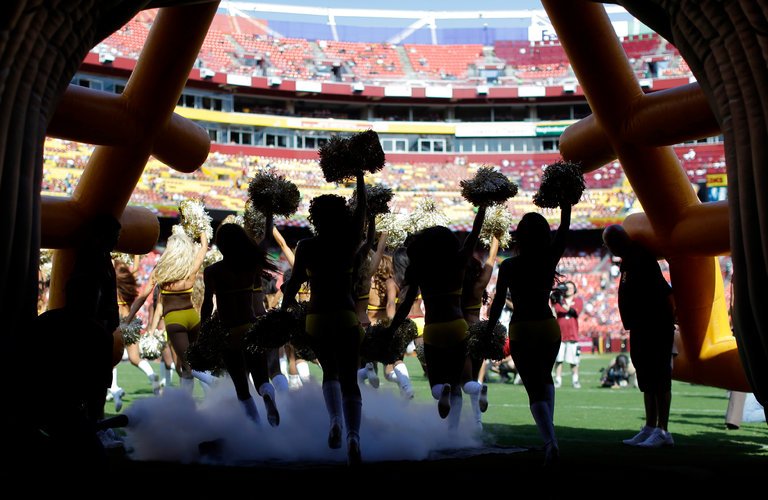Patrick Semansky/Associated Press
The N.F.L. did not accept a proposal from two former cheerleaders to drop their gender-discrimination complaints for $1 each by Friday’s deadline, but the league did agree to hear recommendations to improve conditions.
Sara Blackwell, representing former Saints cheerleader Bailey Davis and former Miami Dolphins cheerleader Kristan Ware, said on Friday evening that she would suspend the two complaints for now, in hopes that the N.F.L. was genuine in its offer to listen to suggestions for improving workplace conditions for all cheerleaders.
“I’m grateful for this letter, and I do believe that this is a good-faith effort by the N.F.L.,” Ms. Blackwell said, declining to provide a copy of the letter for publication. “There could be good things that come from it.”
The N.F.L. confirmed that a letter had been sent to Ms. Blackwell from a lawyer representing the league.
“As we said before, our office is working with the clubs in sharing best practices and employment-related processes that will support club cheerleading squads within an appropriate and supportive workplace,” the league spokesman Brian McCarthy said in an email. “The letter expressed that a conversation would be welcome regarding information or recommendations related to the teams’ policies.”
Ms. Davis filed a gender-discrimination complaint in March with the Equal Employment Opportunity Commission, the federal agency that enforces civil rights laws. She was fired by the Saints in January after posting a photograph of herself on Instagram that the team said violated cheerleader rules. Davis alleged that cheerleaders were required to adhere to rules that did not apply to players.
Ms. Ware, another client of Ms. Blackwell’s, filed a complaint against the Dolphins and the league in April with the Florida Commission on Human Relations. She said that she had been discriminated against because of her gender and for expressing her Christian beliefs, something players do regularly.
In a letter sent to an N.F.L. attorney by Ms. Blackwell on April 24, Ms. Davis and Ms. Ware offered to settle their cases in exchange for $1 each and a four-hour “good faith” meeting with other cheerleaders and the league’s commissioner, Roger Goodell. Among the few other stipulations was one that said the N.F.L. could not disband any cheerleading squads over the next five years.
The letter gave the N.F.L. until the close of business on Friday to respond.
With the deadline approaching, Ms. Blackwell received a letter from Steven Hurd, a lawyer at Proskauer Rose in New York, which often represents the N.F.L. Short of agreeing to the settlement proposal, the response indicated that the league was open to conversations and suggestions for improving working conditions for cheerleaders, Ms. Blackwell said.
Left unsaid was what form any conversations would take, and there was no promise that Mr. Goodell would be directly involved. Ms. Blackwell added that her clients could and would resume their complaints should they feel the league is not seriously committed to discussions.
The complaints of Ms. Davis and Ms. Ware have added to recent scrutiny over the treatment of cheerleaders, especially in the N.F.L. Dozens of women have come forward to discuss, among other things, persistently low wages for long working hours, restrictive social-media and fraternization rules that rarely apply to players, and frequent cases of groping and other forms of sexual assault and harassment.
Cheerleaders for the Washington Redskins, for example, were asked to pose topless during abeachside photo shoot while invited male sponsors looked on, and later served as escorts for the men at a nightclub.
